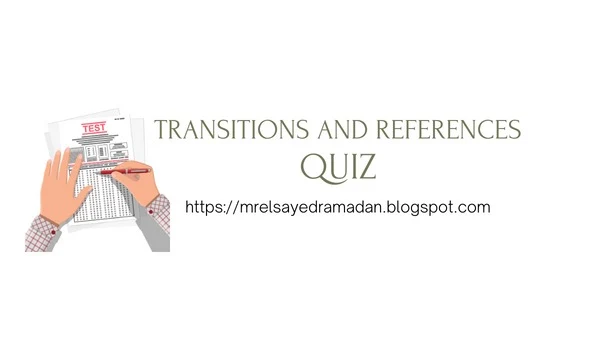Transitions and References Quiz
Welcome to our blog post on mastering the art of transitions and references in standardized test-taking! Whether you're preparing for the SAT, ACT, GRE, or any other test such as EST, understanding how to effectively use transitions and references can make all the difference in your score. In this post, we'll be providing a comprehensive quiz to help you test your knowledge and improve your skills in these areas. So grab a pen and paper and let's get started!
1/4
Even though the ancient Greeks were likely to see themselves as victims of fate, they were also inclined to regard humans as a privileged species. Coincidentally, in Sophocles’ Antigone, the chorus proclaims that “many wonders there be, but naught more wondrous than man.”
NO CHANGE
For example,
Furthermore,
Nevertheless,
Explanation: The first sentence indicates a general fact about the ancient Greeks, and the quote from Antigone in the second sentence provides a specific example to illustrate that fact. Therefore, choice B, For example, is the most logical choice. Choice A is incorrect because a coincidence is a surprising simultaneity of events, but these sentences indicate no such simultaneity. Choice C is incorrect because the second sentence does not extend a previous claim. Choice D is incorrect because the second sentence does not contrast the first.
2/4
As satisfying as it may be to punish wrongdoers, the real impetus behind tough sentencing laws is the belief that long prison terms deter crime. Even worse, the loss of autonomy and dignity that many prisoners experience often exacerbates any psychological issues that made them susceptible to crime in the first place.
NO CHANGE
However,
In other words,
As a result,
Explanation: The first sentence describes a belief about tough sentencing, but the second sentence indicates a fact that undermines that belief. Therefore, the most logical transition is However. Choice A, Even worse, is incorrect because the second sentence doesn’t describe an escalation of negativity. Choice C is incorrect because the second sentence does not clarify or paraphrase anything. Choice D is incorrect because the second sentence does not describe a result.
3/4
As societies become more complex and diverse, many people become more fearful and anxious, and thus are inclined to become more reactionary in their political views. Consequently, extremists in the media—talk radio hosts, cable news pundits, and radical bloggers— have access to a deep pool of resentment that they can exploit for financial gain.
NO CHANGE
Nevertheless,
Likewise,
For instance,
Explanation: The first sentence describes a general social trend, and the second sentence describes a result of that trend. Therefore, Choice A, Consequently, provides a logical transition. Choice B is incorrect because the second sentence does not indicate an ironic or surprising situation. Choice C is incorrect because the second sentence does not indicate a situation that is analogous to any previously mentioned. Choice D is incorrect because the second sentence does not exemplify anything described in the first sentence.
4/4
For decades, biologists have been trying to explore the genetic relationship between ancient humans and Neanderthals. However, they have lacked the technology to prevent the contamination of ancient DNA during the extraction process. Fittingly, the “clean room” at the Max Planck Institute has solved this problem, allowing scientists to examine minute bits of genetic material from 400,000 year-old hominid bones.
NO CHANGE
Fortunately,
In turn,
Accordingly,
Explanation: The first two sentences describe a problem that has impeded biological research, and the third sentence describes a breakthrough that has solved the problem. Choice A, Fittingly, is incorrect because nothing in this paragraph indicates that the “clean room” solution is any more appropriate to the context than any other solution. Choice C, In turn, is incorrect because nothing indicates that the solution arose from an exchange or logical sequence of events. Choice D, Accordingly, is incorrect because nothing indicates that this solution corresponds to or results from any defined situation. Choice C is best because it is certainly fortunate to find a solution to a long-standing problem.

